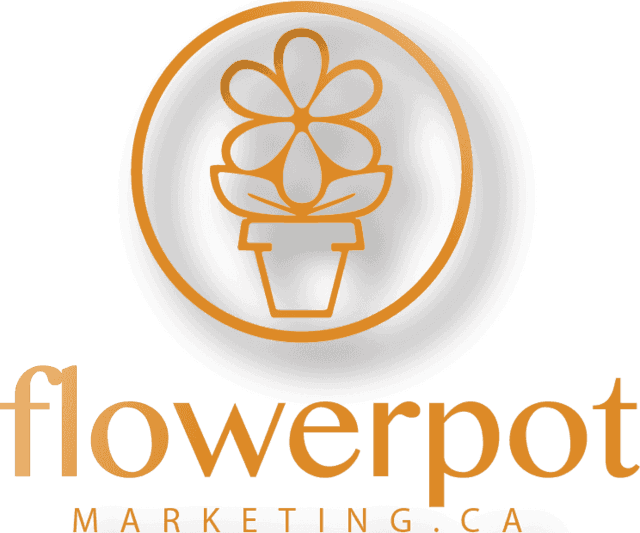By: Melissa Barlock
Resumes don't get jobs - People Do!

In my previous post I stressed the importance of having a flawless resume, so you spent all your time and effort making sure that it is Clear, Concise, Consistent, Compelling, AND Customized.
Congratulations! You’ve got the…interview. I hate to be the one to break it to you, but doing well in your interview is just as is important (arguably more so) as having a solid resume. The good news is that if you’ve made it this far then the recruiter or hiring manager is already VERY interested in you; if they weren’t, they wouldn’t be spending all this trouble getting to know you a little better (just as you wouldn’t have spent all that time getting your resume just right). And that is exactly what they are doing, trying get to know YOU better. Of course you’ll want to expand on your accomplishments and assure them of your absolute competence for the role, but if it was all about your technical qualifications there would be no real purpose for the interview; they would have just asked for a lengthy and detailed CV in place of your resume. Although your excellent job-specific skills are very impressive and valuable, employers also want to know if you will love the job, if you will fit in, and if they will enjoy working with you—basically, will they like you? And will their patients like you? They also want to know if you’ll like working there. People leave their jobs for various reasons, but if not for salary (which is often negotiable), it usually comes down to unhappiness. It’s no revelation that people like to be happy, but its importance in the workplace is becoming increasingly apparent. That is why ‘culture’ seems to be the buzzword of the times; a positive and cooperative work environment is not only good for you and your coworkers, but it’s also good for business. Negativity can spread like a virus, infecting the entire staff and clientele. On the other hand, positivity is just as contagious. This is why I emphasize soft skills and can’t get away from topics related to relationship building and basic principles like reciprocity. It is also why your resume was designed to highlight your positive traits—to showcase YOU. But resumes don’t get jobs, people do.
Your resume can only say so much. That’s where the interview fits in. It’s the company’s final screen test to help ensure they’re making a good investment. If you’re reading this, then you already get it: the first step is being PREPARED. As usual, the following is intended to be a guideline of what I believe to be some of the most important points. Some of them are going to seem rudimentary or obvious, but you’d be surprised at how often the little things can either be forgotten or neglected, so I’m going to mention them anyway.
Be flexible when scheduling interviews: accommodate the schedule of the interviewer to the best of your ability. The interviewer will more than likely be sympathetic to the fact that you have a busy life too, and if you’re still employed or have other responsibilities, they’ll certainly understand and try to make accommodations for you as well. Just be aware that if you keep rescheduling or they can’t seem to find a time that works for you, it may create the sense that you’re too busy for their needs and that you may be unreliable.
Do your research: Have an in-depth understanding of the company before your interview. If you didn’t do this while preparing your resume, take some time to search the company you’re applying to online. Most companies nowadays have a website or some online presence that you can easily find with a quick search. As a start, think about answering the five questions about the company: Who are they and who’s the founder? What is their mission statement? Where are they located? Why do you want to work there? And when did they get started? The more you know, the better. You’ll want to be sure the company is the right fit for you, too. People love it when you take an interest in them, and your knowledge about the company will show that you’ve taken the time and consideration and that you truly want to work there.
Prepare your responses: Although it may seem like there are an unlimited number of possible questions you may have to answer, there are really only so many types of questions the interviewer can ask you. Expect to talk a little bit about yourself, your interests, and perhaps even your family. Also be prepared to elaborate on your experience, skills, and accomplishments. Be especially ready to discuss how you handle scenarios that are particularly relevant to the job, such as how you deal with stressful situations or how you comfort patients that are afraid or in pain. Pretend you’re the interviewer, and think of the questions you’d ask a prospective hiree. Then practice your responses so you’ll come off looking sharp when the time comes.
Write down questions you have about the company: Your needs matter too, so also consider what you would like to know about the company. For instance, you may want to know what they are looking for in a good candidate, or what the company culture is like. However, if you’d like to know your salary or how much vacation time you can expect, I suggest waiting until the interviewer brings it up or saving it until the end of the interview; that way it doesn’t seem like your main priority.
Have your resume and references printed and placed in a folder or portfolio: Mostly just a reminder here. Your interviewer will most likely have your resume on hand, but bring one just in case. You may also refer to it when discussing your educational or work history. A professional portfolio is crisp and neat.
Plan your attire the night before: You don’t want to be late, or add any unnecessary stress, so have your clothes clean and ironed the night before your interview. Dress comfortable but professional; business casual is your safest bet. Closed dress shoes for men and flats or low heels for women is ideal. Also, don’t wear too much ‘bling’ during the interview; over-accessorizing can actually reduce the look of professionalism. And don’t forget to shower; you’re in the health and hygiene industry, so it’s best to play the part. Brush or comb your hair, and consider using scent-free products; due to allergies and other sensitivities, many offices today are scent-free work environments. How you present yourself during the interview is an indication of how you’re going to present yourself to your clients, so make sure you dress for success.
Get plenty of rest the night before: In order to be at your best, you’ll need to get a full night’s rest. So plan accordingly.
Be on time! Unless you have a particularly good reason, it’s imperative that you be on time. Being late for something as important as an interview may be a sign that you’ll be more than just late for work. I like to say that how you do anything is how you do everything. So be prepared and plan ahead. Know how long it will take to get to the interview and account for any delays, such as bad weather or construction. Don’t be too early, either. While you may think that it is an indication of your eagerness for the position, being too early may make the person interviewing you feel rushed. Plan to be there ten minutes in advance.
How do I act and what do I say during the interview? The most important thing that you can do is to BE YOURSELF (remember what we talked about in the introduction). Of course, you’ll want to be your best, professional self. But if you’ve anticipated most of the questions you’ll be asked and prepared your responses, you’ll have plenty to talk about. They’re already interested in you, so be confident and show your enthusiasm for the position—perhaps nothing is more attractive than positivity and enthusiasm. Much of communication is nonverbal, so also be mindful of your posture and other nonverbal cues that you may be displaying. Speak at a steady pace; speaking too quickly can create a state of anxiety, and speaking too slowly can give the impression that you might not be able to keep up at work. Also, adopt an open posture to match your attitude; it’s more welcoming and it will help to establish a good connection.
What do I do when the interview is finished? Look the interviewer in the eyes, shake his or her hand, and then thank them for the opportunity. Your grip should be firm and confident, but it shouldn’t be crushing or too soft. Ensure they have your contact information and let them know that they can contact you if they have any further questions.
Professional thank you letters and emails: After the interview, write a professional letter or email thanking your interviewer for taking the time to meet with you, and you’ll definitely stand out. Ensure to address it to Dear Dr. or Mr. or Mrs./Ms.__________. Professionally sign the bottom. Remember to be professional and kind, and thank them for the opportunity again.
It’s natural to be a little nervous when you’re being put on the spot, but with a little preparation and practice you’ll be using the interview to your advantage. The key is to get comfortable with being uncomfortable. You’ll not only nail your interview, but you’ll develop valuable skills that will carry over into both your work and personal life.
Enspire Dental Opportunities is looking forward to working with you.












